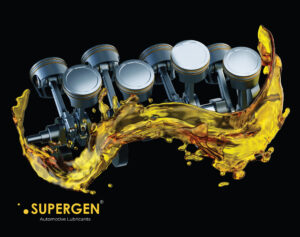In today’s highly competitive transportation and logistics industry, every dollar saved matters. One of the most effective ways to reduce operational costs while improving fleet performance is to invest in high-quality engine oil.
Engine oil plays a critical role in vehicle maintenance, impacting everything from fuel economy to engine lifespan. This comprehensive guide explores how using quality engine oil can boost fleet efficiency, reduce maintenance costs, and support sustainable fleet operations.
The Importance of Quality Engine Oil for Fleet Efficiency
Engine oil isn’t just a lubricant; it’s the lifeblood of any engine, working to reduce friction, protect against wear, and maintain optimal temperature levels.
When it comes to fleet vehicles that run continuously under high stress, the quality of the engine oil can significantly impact overall performance.
High-quality engine oil is designed to provide better viscosity, durability, and temperature stability, making it ideal for heavy-duty applications in fleets.
Key Benefits of Quality Engine Oil:
- Enhanced Engine Protection: Quality oils form a robust protective layer over engine components, reducing wear and tear.
- Improved Fuel Efficiency: Better lubrication decreases engine drag, resulting in improved fuel economy.
- Extended Engine Life: High-quality oils can delay the aging process of engines, resulting in fewer replacements and repairs.
- Reduced Emissions: Premium oils burn cleaner, reducing carbon emissions and environmental impact.
How Quality Engine Oil Reduces Maintenance Costs
The right engine oil can have a dramatic effect on maintenance costs, reducing the need for frequent repairs and downtime. Here’s how quality engine oil can minimize expenses:
a. Lower Engine Wear and Tear
Heavy-duty engines, especially in commercial vehicles, are under constant strain. Quality engine oils contain additives that create a strong barrier, protecting moving parts from excessive wear. As a result, engines last longer, and costly repairs or replacements can be avoided.
b. Fewer Oil Changes
Quality engine oils are designed to last longer than conventional oils. Synthetic oils, for instance, are engineered to resist breakdown, reducing the need for frequent oil changes. Fewer oil changes translate to less downtime and lower labor costs for fleet operators.
c. Prevention of Sludge Buildup
Lower-quality oils often result in sludge buildup, which can clog engine parts and reduce performance. Premium oils are more resistant to oxidation and high temperatures, minimizing sludge accumulation. Clean engines are more efficient, less prone to failure, and require less maintenance.
d. Better Temperature Management
Heavy-duty vehicles generate intense heat, especially during long hauls. Quality engine oils are formulated to manage high temperatures more effectively, ensuring that engines don’t overheat. By preventing overheating, fleets can avoid expensive repairs related to thermal breakdowns.
Understanding the Different Types of Engine Oil for Fleet Applications
Choosing the right type of engine oil for your fleet is crucial. Here’s a breakdown of the main types:
a. Conventional Oil
Conventional oils are affordable and readily available, making them popular in certain light-duty applications. However, they lack the additives found in synthetic oils, making them less suitable for high-performance or heavy-duty fleets.
b. Synthetic Oil
Synthetic oils are chemically engineered for enhanced performance. They offer superior resistance to temperature extremes, better lubrication, and longer lifespans. Synthetic oils are ideal for fleets that operate in demanding conditions, as they can endure rigorous use without breaking down.
c. Synthetic Blend Oil
Synthetic blend oils combine conventional oil with synthetic oil, offering improved performance at a more affordable price point than full synthetics. This blend is popular among fleet managers looking for better protection without the full cost of synthetic oil.
d. High-Mileage Oil
High-mileage oils are specifically formulated for older vehicles with higher mileage. They contain special additives to reduce leaks, decrease oil consumption, and improve engine performance. For fleets that maintain aging vehicles, high-mileage oils can be an excellent investment.
Key Factors to Consider When Selecting Engine Oil for Fleet Vehicles
a. Viscosity Rating
Viscosity refers to how easily oil flows at different temperatures. Heavy-duty vehicles typically require a higher-viscosity oil to withstand intense operational heat. The viscosity rating (e.g., 5W-30, 15W-40) indicates how the oil will perform in specific temperature ranges.
b. Additive Packages
Additives are essential for enhancing oil performance. Look for oils with additives like antioxidants, detergents, and anti-wear agents to protect the engine and maintain cleanliness.
c. Manufacturer Specifications
Most manufacturers specify the type of oil needed for optimal performance. Always consult the vehicle’s manual and ensure that the oil meets or exceeds the recommended standards.
d. Compatibility with Operating Conditions
Consider the operational conditions of your fleet. Extreme heat, cold, or extended periods of idling can all affect oil performance. Make sure the oil you choose is suited to the specific demands of your fleet.
Best Practices for Managing Engine Oil in Fleet Operations
Maintaining optimal engine oil levels and quality is crucial for fleet efficiency. Here are some best practices for effective oil management:
a. Regular Oil Analysis
Routine oil analysis provides insights into the health of both the oil and the engine. By monitoring oil quality, fleet managers can detect contaminants, wear particles, and other issues before they lead to costly repairs.
b. Scheduled Oil Changes
Following a regular oil change schedule ensures that engines always have fresh, high-quality oil. The schedule can vary depending on the type of oil used, the age of the vehicle, and the severity of operating conditions.
c. Monitor Oil Levels and Top-Off When Necessary
Low oil levels can lead to engine damage and reduced efficiency. Encourage drivers to check oil levels regularly and top-off as needed to maintain optimal performance.
d. Use Oil Drain Valves
Oil drain valves allow for quick, efficient oil changes, reducing labor time and ensuring that old oil is completely removed. This process reduces the likelihood of contamination from leftover oil.
The Long-Term ROI of Investing in Quality Engine Oil for Fleet Vehicles
While high-quality engine oils may have a higher upfront cost, the long-term savings and ROI are substantial. Here’s how:
a. Reduced Repair Costs
Quality engine oils reduce engine wear and prevent issues like sludge buildup and overheating. With fewer repairs, fleets can allocate their budgets to other priorities or expand operations.
b. Improved Fuel Economy
Better lubrication means less resistance and a smoother-running engine. Quality oils often lead to fuel savings of 1-2%—a seemingly small percentage that can result in significant savings over time.
c. Extended Vehicle Lifespan
Quality oils help keep engines in peak condition, allowing fleet managers to get more mileage out of each vehicle. This not only reduces the need for frequent replacements but also enhances resale value.
d. Enhanced Environmental Compliance
Using high-quality oil can help reduce emissions, making it easier for fleets to comply with environmental regulations. Lower emissions contribute to a cleaner environment and can improve a company’s reputation for sustainability.
Summing Up
Investing in high-quality engine oil is more than just an operational decision; it’s a strategic investment in fleet efficiency, reliability, and longevity.
By reducing maintenance costs, enhancing fuel economy, and extending the life of fleet vehicles, quality engine oils prove invaluable for businesses aiming to stay competitive.
FAQ’s
1. How often should fleet vehicles have an oil change?
The frequency of oil changes depends on the type of oil used, the vehicle’s age, and the operating conditions. Typically, synthetic oils allow for longer intervals, with changes required every 10,000 to 15,000 miles, while conventional oils may need changing every 5,000 to 7,500 miles.
2. What are the main benefits of synthetic oil over conventional oil for fleets?
Synthetic oil offers superior resistance to extreme temperatures, reduced sludge buildup, and longer-lasting lubrication, which helps reduce wear and tear on engines. This translates to fewer oil changes, enhanced fuel efficiency, and lower maintenance costs, making it ideal for fleets that operate in demanding conditions or for long hours.
3. Can using high-quality engine oil really impact fuel efficiency?
Yes, high-quality engine oil reduces internal friction, allowing the engine to run more smoothly and efficiently. This can improve fuel efficiency by 1-2%, which may seem minor but can result in substantial savings over time, especially for large fleets.








